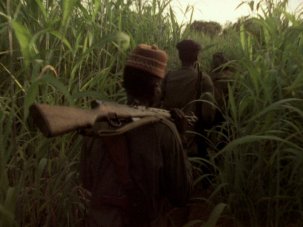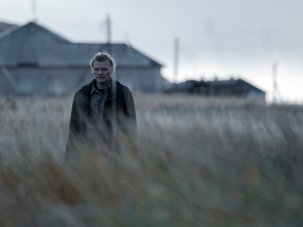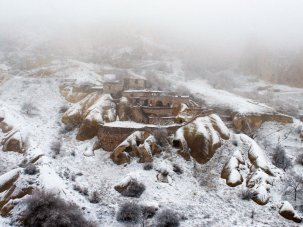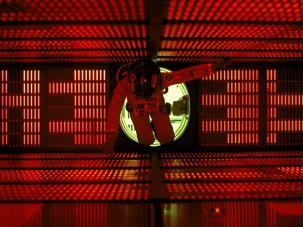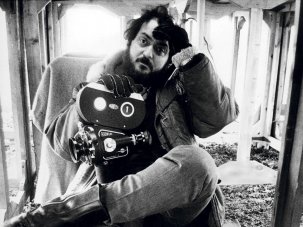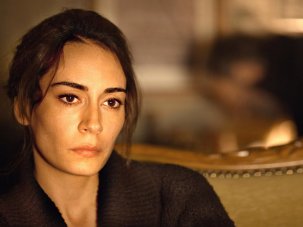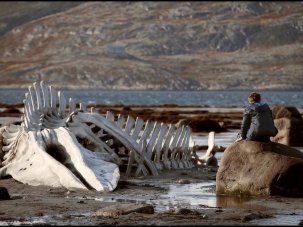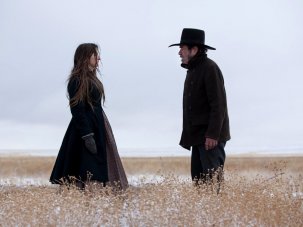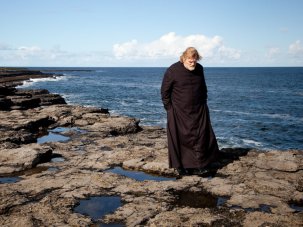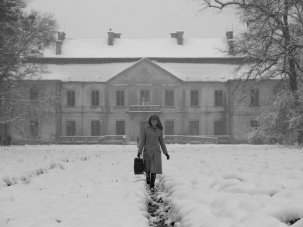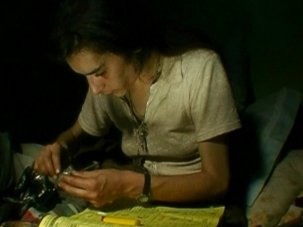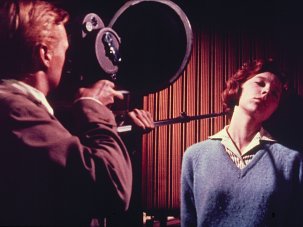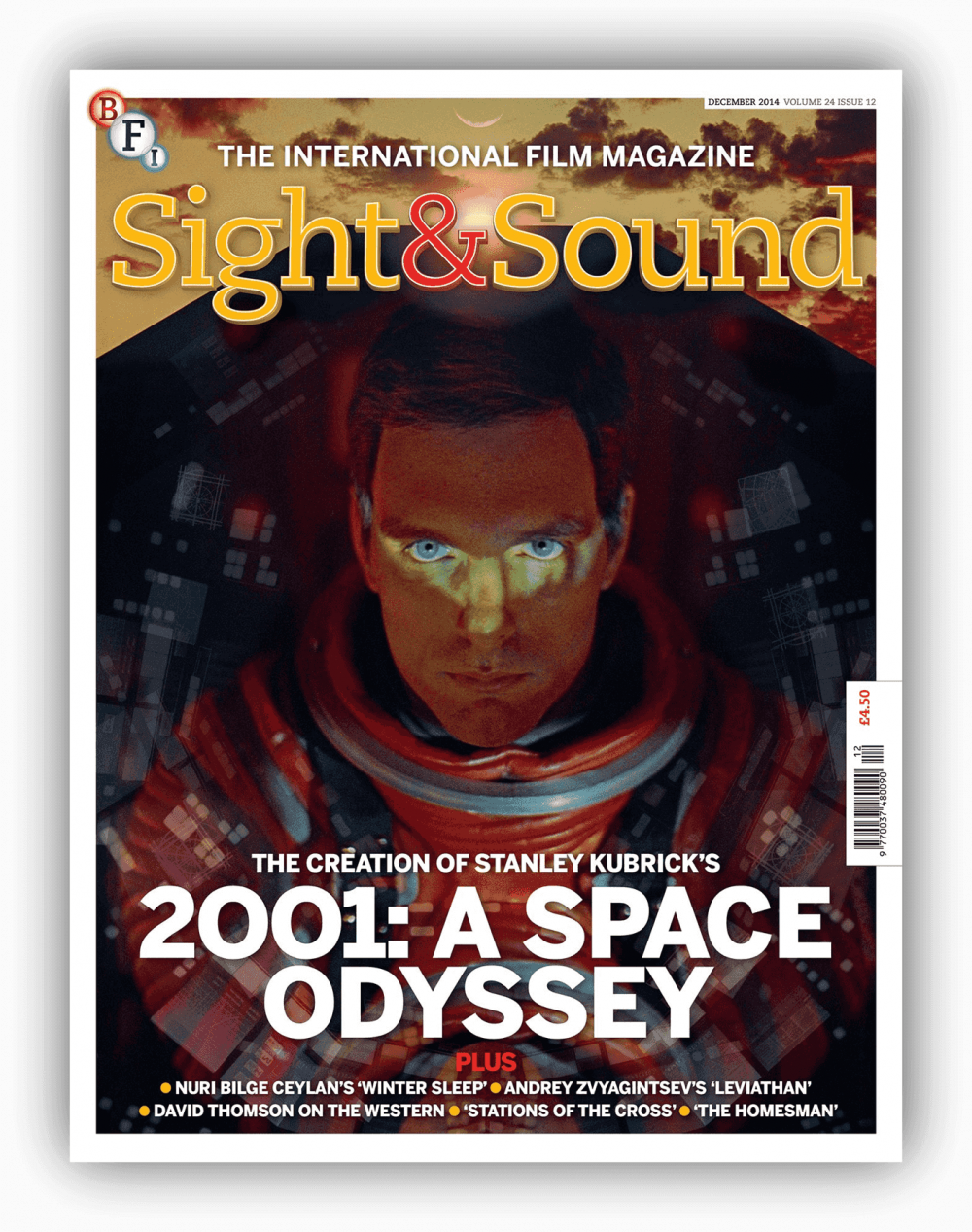
This month we go back to a onetime future now passed – at least datewise – to 2001: A Space Odyssey and the wonderful technical and aesthetic achievements of Stanley Kubrick’s groundbreaking science-fiction epic. Deftly unpicking the film’s complex production-design history, Christopher Frayling notes that Kubrick’s first choice Ken Adam declined, bemoaning that with “all kinds of research at your disposal… there would not be any room left for my imagination”. What a missed opportunity? In a visit to the set made in 1966 for Sight & Sound, David Robinson recalls sharply that, “Kubrick at work on his stages has rather the air of a David embattled with several Goliaths… Sometimes the machines seem to be getting the upper hand.”
Posted to subscribers and available digitally 31 October
→
→ Sign up / log in
On UK newsstands 4 November
The big auteur beasts of the summer’s Cannes Film Festival – Palme d’Or winner Nuri Bilge Ceylan and Best Screenplay winner Andrey Zvyagintsev – see their films reach UK shores, perhaps to battle it out with one another. After all, both are ambitious epics of considerable length and scope with a distinctly Russian flavour (even if Ceylan’s film is Turkish).
“I really wanted some of the conversations to feel long,” says Ceylan in his interview with Geoff Andrew about Winter Sleep, his distinctly Chekhovian study of a retired actor who now owns a remote hotel that he shares with his much younger wife and embittered sister. Andrew calls the film “a piercingly astute, often affectionately witty study in pride, vanity, insecurity and self-deception.”
Ian Christie’s view of Zvaygintsev’s Leviathan, the tale of a rural struggle between the owner of a wooden house that’s been in his family for generations and the local mayor who intends to demolish it, is that “the tightly wound plot shows just how terrifyingly anarchic the farthest corners of Russia can be today.”
In wondering about the illustrious line that joins Howard Hawks’s Red River to Tommy Lee Jones’s new release western The Homesman, David Thomson admits his chief problem with today’s film students is, “How can I expect them to see Red River or the other [Hawks] films through the eyes of 1976 or 1948?” The western, he continues, “needs to benefit from a new historical awareness… where honour and a free market are under pressures we know today.”
Looking back from the perspective of Dietrich Brüggemann’s Stations of the Cross, Catherine Wheatley contends that “Over the last decade a slow but regular supply of European films has cast a cool gaze upon Christianity and its adherents.” Wheatley’s dissection of the connecting how and why of films like Into Great Silence, Lourdes, Hadewijch, Of Gods and Men, Corpo Celeste, Calvary, Ida and others is as elegant and pithy an analysis as you’d care to find.
We are delighted also to showcase in interview Steve James’s tribute documentary Life Itself, about the great popular American film critic Roger Ebert, a man who was constantly reinventing himself as the age reinvented his surroundings.
-
Sight & Sound is now available in digital editions for Apple iOS, Android and Kindle Fire as well as computer desktops. Scroll this gallery to browse this issue’s sections.
-
RUSHES: Jacques Tati, urban planner; five key whistleblower films; Craig Johnson, writer-director of the dark comedy The Skeleton Twins; Hannah McGill drops a bomb, and Mark Cousins’s new curriculum for film schools.
-
THE INDUSTRY: keeping Paddington on track; Ida and the logic of releasing films in September; inspirational US director Ira Sachs.
-
COVER FEATURE: Stanley Kubrick was determined his ‘definitive’ sci-film should break with Hollywood design norms – and who better to help than NASA consultants? By Christopher Frayling. Plus David Robinson describes the set of the film.
-
Leviathan, Andrey Zvyagintsev’s tense drama about a man struggling to save his family home from a tyrannical mayor, offers a savage portrait of corruption in contemporary Russia. By Ian Christie.
-
Nuri Bilge Ceylan’s Winter Sleep is a claustrophobic, psychologically acute chamber drama with echoes of Chekhov, Bergman and Shakespeare. By Geoff Andrew.
-
It’s impossible to watch an old-fashioned western with the same eyes as in the late 40s, but their influence still colours the way we receive modern counterparts like The Homesman. By David Thomson.
-
Steve James’s Life Itself is an infectiously warm account of the career of film critic Roger Ebert. By Nick Bradshaw.
-
Stations of the Cross, Dietrich Brüggemann’s exploration of a teen girl’s growing religious fanaticism, joins a string of films exploring Christianity – a trend hinting at a wider spiritual disquiet at the heart of the modern world. By Catherine Wheatley.
-
WIDE ANGLE: Omer Fast on the set of his adaptation of Tom McCarthy’s cult novel Remainder, the astonishing sounds of Uzbek film 40 Days of Silence, fantastic invasions before World War I and Toronto’s Wavelengths strand.
-
REVIEWS: Concerning Violence, The Homesman, Sacro GRA + 40 more new releases.
-
HOME CINEMA: the surreal charm of Walerian Borowczyk’s films, A Jester’s Tale by the Czech master of fantasy Karel Zeman; Elizabeth Taylor’s boldest performance in The Driver’s Seat (aka Identikit) + 13 more releases reviewed.
-
BOOKS: an anthology of the great film critic Raymond Durgnat, the writings of filmmaker and teacher George Kuchar, a visit to Gainsborough Studio in the silent era and Iain Sinclair’s 70th birthday celebrations.
-
ENDINGS: Charlie Fox on Pierrot le fou.
Features
COVER FEATURE: The creation of 2001: A Space Odyssey
Stanley Kubrick was determined the design for his “definitive attempt” at the science-fiction film should represent a decisive break with Hollywood norms – and who better to enlist to his cause than a pair of spacecraft consultants poached from the very heart of NASA itself? By Christopher Frayling.
Plus: David and his goliaths
In this extract from an essay in Sight & Sound in spring 1966, Two for the sci-fi, David Robinson describes Kubrick’s tireless perfectionism, which he observed during a visit to the set of 2001: A Space Odyssey.
Here be monsters
Leviathan, Andrey Zvyagintsev’s tense drama about a man struggling to save his family home from a tyrannical mayor in a village on the Barents Sea, offers a savage portrait of the corruption and lawlessness endemic in contemporary Russian society. By Ian Christie.
Conversation piece
With echoes of Shakespeare, Chekhov and Bergman, Nuri Bilge Ceylan’s Winter Sleep is a claustrophobic, psychologically acute chamber drama exploring the self-delusions and failed relationships of a proud, vain hotelier in an isolated region of Turkey. By Geoff Andrew.
Watching the river flow
It’s impossible now to watch an old-fashioned western like Howard Hawks’s Red River or Rio Bravo with the same eyes we did in, say, the 1970s or even the late 40s, but their influence on the cultural landscape still colours the way we receive modern counterparts like The Homesman. By David Thomson.
Dreams of a life
Steve James’s Life Itself is an infectiously warm account of the career of the late Pulitzer prize-winning US film critic Roger Ebert, charting his near 50-year relationship with the Chicago Sun-Times, his pioneering work on television and his enthusiastic late-life conversion to blogging. By Nick Bradshaw.
Holy motors
Stations of the Cross, Dietrich Brüggemann’s exploration of a teenage girl’s growing religious fanaticism, is the latest in a string of films exploring Christianity and its adherents – a trend that hints at a wider cultural and spiritual disquiet at the heart of the contemporary world. By Catherine Wheatley.
Regulars
Editorial
All year red carpet
Rushes
In the frame: The house that Jacques built
Jacques Lagrange’s set designs were more than mere adornment for Jacques Tati – they were central to how he constructed his gags. By Isabel Stevens.
Object lesson: Too clever by half
As the ‘smart bomb’ in John Carpenter’s Dark Star demonstrates, nothing is more explosive than the ability to think. By Hannah McGill.
The five key…: Whistleblower films
As Laura Poitras’s Citizenfour hits UK screens, we honour cinema’s finest bean spillers for refusing to bow to corruption and cover-ups. By Michael Brooke.
Interview: Damage control
Craig Johnson, the director of the award-winning black comedy The Skeleton Twins, talks siblings, suicide and cinematic heroes. By Trevor Johnston.
Dispatches: What I’d teach at film school, part 1
Not everything they teach at film school should be practical. How about a little Edmund Burke or nude figure drawing instead? By Mark Cousins.
The industry
Development tale: Paddington
How the man behind the Harry Potter films gave another beloved children’s character a screen makeover. By Charles Gant.
The numbers: Ida
Brewster: Controlling interest
Ira Sachs’s inspiring career shows how cost control and smart fundraising can enable art to flourish. By Ben Roberts.
Wide angle
Preview: The reborn identity
Omer Fast is the latest artist to move into feature filmmaking, with an adaptation of Tom McCarthy’s cult novel Remainder. By Kieron Corless.
Soundings: Silent hope
In 40 Days of Silence, an Uzbek girl’s vow not to speak is underwritten by a bold experimental score that eschews tradition and nature. By Frances Morgan.
Primal screen: The world of silent cinema
Before World War I, concerns over German military power spurred an invasion-themed science-fiction cycle. By John Oliver.
Festival: Exorcise regime
Pedro Costa’s first fiction feature since 2006 is just one of the assaults on cinematic convention found in Toronto’s Wavelengths strand. By Jason Anderson.
Reviews
Films of the month
Concerning Violence
The Homesman
Sacro GRA
plus reviews of
Alexander and the Terrible, Horrible, No Good, Very Bad Day
Annabelle
Bang Bang!
Björk: Biophilia Live
Black Butler
The Book of Life
The Case Against 8
Citizenfour
Dracula Untold
The Drop
Fury
Giovanni’s Island
Going Away
The Great Museum
Haider
Hockney
Honeymoon
I Am Ali
The Imitation Game
Leviathan
Life Itself
Luna
Mary Is Happy, Mary Is Happy.
My Old Lady
The Necessary Death of Charlie Countryman
Night Train to Lisbon
No Good Deed
The November Man
The Possibilities Are Endless
The Remaining
The Rewrite
Say When
Serena
Set Fire to the Stars
The Skeleton Twins
Stations of the Cross
Third Person
This Is Where I Leave You
What We Do in the Shadows
Winter Sleep
DVD features
Camera obscura: The Walerian Borowczyk Collection
A new box-set makes a persuasive case for placing Polish director Walerian Borowczyk in the pantheon of filmmaking greats. Reviewed by Kim Newman.
Rediscovery
Fantastic Mr. Zeman
One of the masters of 20th-century illusionism, Karel Zeman has had a profound influence on the fantasy cinema of today. Reviewed by Nick Bradshaw.
plus reviews of
Films by Frank Borzage
Das Cabinet des Dr Caligari
The Clowns
The Death Kiss
Fedora
Iguana
Le jour se lève
The Mack Sennett Collection Volume 1
Shivers
Sofia’s Last Ambulance
Youth of the Beast
Television reviews of
Fargo
The History Man
Lost & Found
The Driver’s Seat (aka Identikit)
The circus surrounding Elizabeth Taylor’s private life overshadowed one of the boldest performances of her career. Reviewed by Simon McCallum.
Books
The Essential Raymond Durgnat
The George Kuchar Reader
London’s Hollywood: the Gainsborough Studio in the Silent Years
70X70
Endings
Pierrot le Fou
The explosive finale of Jean-Luc Godard’s delirious, discombobulating New Wave classic is a bewitching enigma. By Charlie Fox.
Further reading
-
The Digital Edition and Archive quick link
Log in here to your digital edition and archive subscription, take a look at the packages on offer and buy a subscription.







